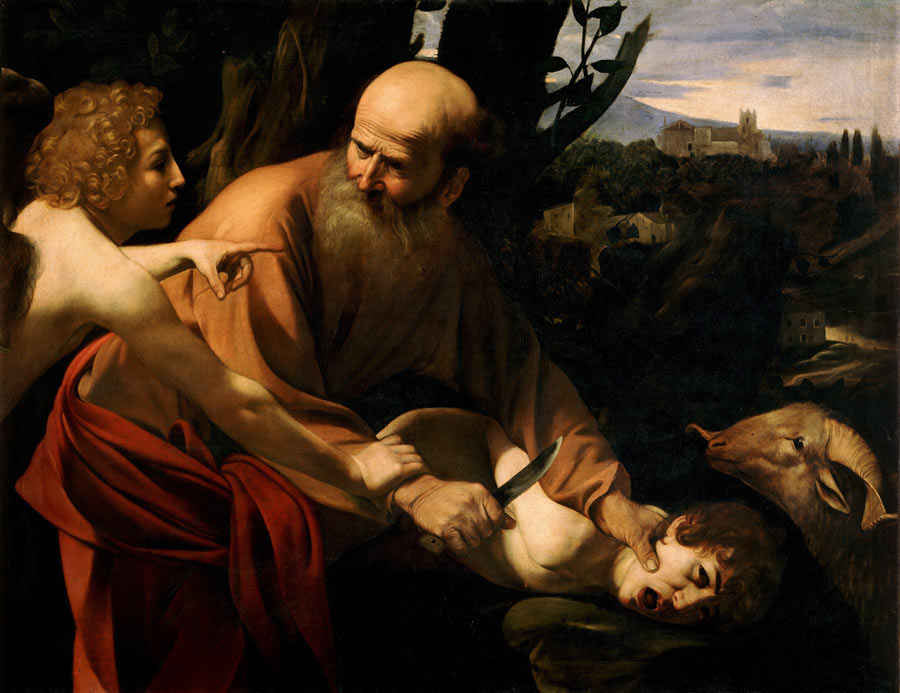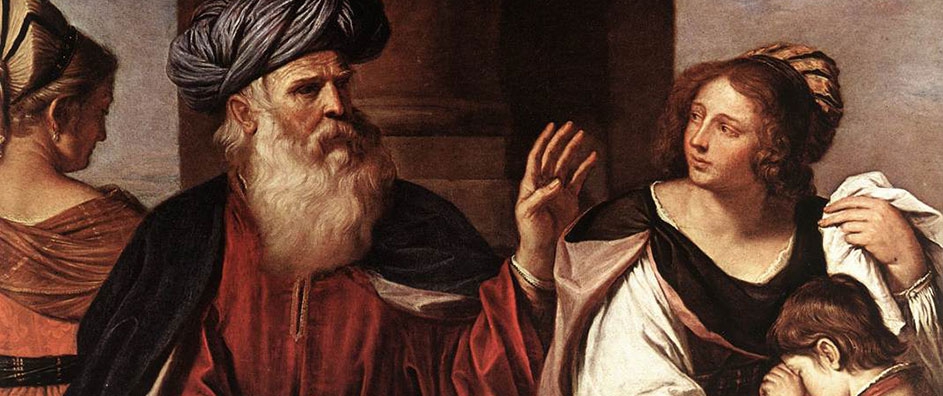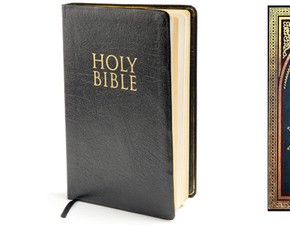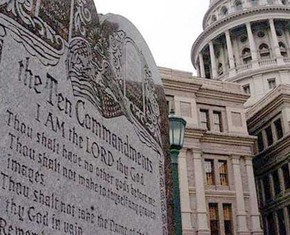The views expressed in our content reflect individual perspectives and do not represent the authoritative views of the Baha'i Faith.
The sacrifices made by messengers of God can be startling and even terrifying, but they are also illuminating and inspiring.
The calm and loving manner in which the prophets—the manifestations of God—bear the sufferings heaped upon them brilliantly demonstrates the eternal nature of the soul. Abdu’l-Baha explained:
If the spirit were not immortal, how could the Manifestations of God endure such terrible trials? Why did Christ Jesus suffer the fearful death on the cross? Why did Muhammad bear persecutions? Why did the Bab make the supreme sacrifice and why did Baha’u’llah pass the years of his life in prison? Why should all this suffering have been, if not to prove the everlasting life of the spirit? – Paris Talks, p. 94.
In contemplating the implications of the spiritual laws undergirding the physical laws of the universe, the sacrifice of Ishmael reveals itself as a more significant act than Abraham’s offering of his own life would have been because—as any loving parent knows—it is far easier to think of killing oneself than one’s child. The potential power of the sacrifice was further increased by the fact that, according to Muhammad, Ishmael was a willing partner in the whole thing. As soon as Abraham mentioned what God had commanded, Ishmael acquiesced, saying, “do what thou art bidden.” – Qur’an 37:102.
With not one but two sacrifices involved—Abraham surrendering the objections of his heart and Ishmael giving up his body—the recompense designated by God must have been exceedingly special, and it was. The purpose of God, Baha’u’llah explains, was to sacrifice Ishmael:
…as a ransom for the sins and iniquities of all the peoples of the earth. – Gleanings from the Writings of Baha’u’llah, p. 78.
On the morning after God requested the sacrifice of Abraham’s only son, Ishmael and Abraham rose early. Calling for two servants to accompany them, Abraham saddled a donkey, and the party of four began a three-day trek toward the mountain where the burnt offering would be made. As they drew near their destination, Abraham told the servants to hunker down, keep an eye on the donkey, and wait for his return. Abraham had brought a load of wood along, and he now loaded it onto the strong shoulders of Ishmael. When that was done, Abraham picked up a knife, grabbed a firepot with which to kindle the wood, and the two of them walked out of sight.
Following the plan he had been given, Abraham built an altar and placed the wood on it. He laid Ishmael on the wood so that he was in the proper position to be burned. Gripping the knife, he prepared to slay his cherished son before lighting the fire that would consume the dead body. Then something unexpected happened:
But the angel of the lord called to him from heaven and said, ‘Abraham! Abraham!’ And he said, ‘Here I am.’” – Genesis 22:11.
The Old Testament, the Qur’an, and the Baha’i scriptures all confirm that God halted Abraham’s hand and prevented him from killing his son. They also agree that in lieu of the son, something else was sacrificed. The Old Testament describes the substitute as a ram, saying,
Abraham lifted up his eyes, and looked, and behold behind him a ram caught in a thicket by his horns: and Abraham went and took the ram, and offered him up for a burnt offering in the stead of his son. – Ibid., 22:11-12.
A few hundred years later, during the revelation of Moses, the basic scenario of substituting an animal for a child was repeated. When the Angel of Death was called by God to pass over Egypt and kill all firstborn sons, including the infant son of Moses and the sons of his followers, Moses instructed each family to sacrifice a lamb. Blood from the lambs was used to mark the doorposts of the faithful families so that the Angel would know to pass over those houses and spare the babies within.
In considering the many spiritual functions of the ram/lamb symbol in the sacrifices made by Abraham and Moses, two possibilities leap out immediately: an educational function and a prophetic one.

The act of sacrifice itself was nothing new, because cultures around the world had been accustomed to sacrificing an animal or a person long before Abraham and Moses arrived on the scene. When a sacrifice was made—including a human sacrifice in many tribal cultures—eating some vital part of the victim was sometimes part of the ritual. Because human sacrifice was still being practiced in Canaan and other regions during the lifetimes of both Abraham and Moses, it is logical to conclude that one of the goals of these messengers of God was to bring an end to this barbaric, spiritually degrading practice.
The tribes of that period might not have been ready to totally dispense with the ritual of sacrificing something living, but by dramatically substituting an animal for a child and showing that God approved of the substitution, Moses and Abraham were able to make a little progress. By demonstrating that it was more pleasing to God to kill an animal than a person, they allowed their followers to practice a satisfactorily tangible method of sacrifice while simultaneously stressing the sacredness of human life.
The prophetic purpose of the animal sacrifices made by Abraham and Moses could have been that of getting humanity ready for vital spiritual lesson to be taught by future religions: self-sacrifice is even more potent than animal sacrifice.
Next: How Many Sacrificial Lambs?
















Comments
Sign in or create an account
Continue with Googleor